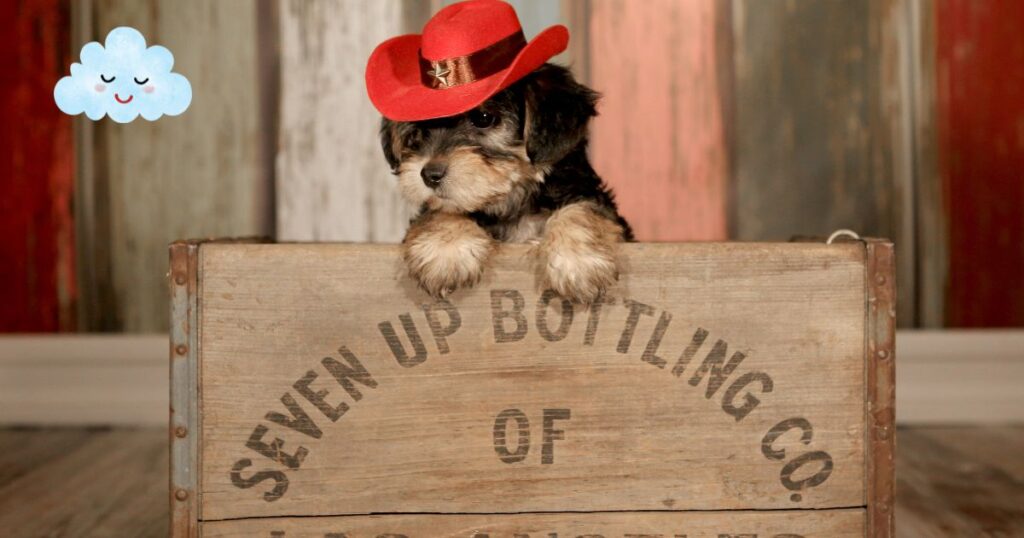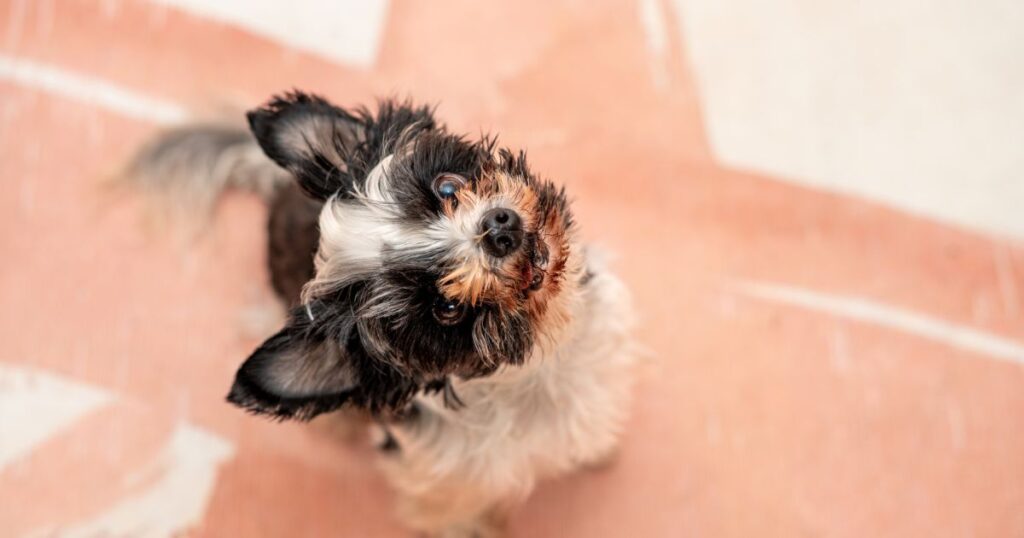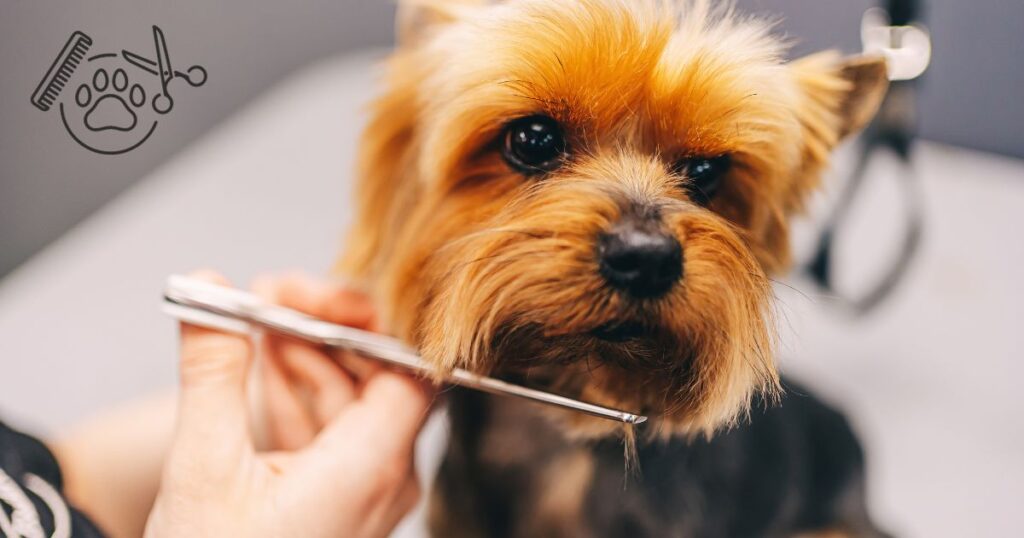How Often Do Yorkies Pee And Poop? [10 Tips for Potty Schedule]

We understand the importance of unraveling the mysteries behind your Yorkie’s peeing and pooping routines. Mastering these habits is not only vital for successful potty training but also for maintaining their overall well-being. Have you ever wondered how often your furry companion needs to relieve themselves?
You’re not alone! In this article, we delve into the intriguing world of Yorkie bathroom behavior, addressing common questions and shedding light on their unique needs.
Caring for a Yorkie goes beyond cuddles and playtime. A crucial aspect of responsible ownership is understanding their natural bodily rhythms. By comprehending how often do Yorkies pee and poop, you’ll be equipped with the knowledge necessary to provide them with a happy and healthy life.
So, let’s embark on this educational journey, uncovering the secrets behind their potty habits and learning how to cater to their needs effectively.
Potty Habits of Young Yorkie Puppies
Potty training is a crucial developmental milestone for young Yorkie puppies. This phase lays the foundation for their future potty habits and is pivotal in creating a harmonious home environment.
Potty training young puppies involves frequent outdoor trips, keen observation of their behavior, and unwavering consistency. By establishing a routine, practicing positive reinforcement, and employing crate training when needed, you’ll set your young pup up for success on their journey to becoming a fully potty-trained adult.
Potty training young Yorkie puppies demands patience, consistency, and a firm commitment to their well-being. During this formative stage, it is essential to be proactive. Taking your puppy outside every 1-2 hours is a fundamental rule of thumb.

This consistent schedule helps them develop a routine and minimizes the likelihood of indoor accidents. Remember, their tiny bladders can’t hold much, so frequent trips outdoors are paramount.
The key to successful potty training is communication. While your pup can not vocalize their needs, they communicate through behavior. Keep an eye out for signs of restlessness, sniffing around, or circling, which often indicate they need to go.
When you notice these cues, swiftly take them to their designated potty area. With repetition, your puppy will associate this spot with relieving themselves, making future potty breaks more predictable.
Establishing a consistent routine contributes to your puppy’s success. Feeding times should be synchronized with potty breaks. After meals, take your pup out to eliminate waste, as their digestive system becomes active during this time. Similarly, immediately after waking up and just before bedtime, provide them with an opportunity to relieve themselves.
Consistency extends beyond timing. Positive reinforcement is your ally in this journey. Celebrate every successful outdoor potty break with enthusiastic praise and perhaps a small treat. Positive reinforcement reinforces the connection between good behavior and rewards, motivating your puppy to repeat the desired action.
Remember that accidents are part of the learning process. Instead of scolding, redirect your pup to the designated potty area and clean up the mess calmly. Patience is key; mastering potty habits takes time and effort.
To make the process smoother, consider crate training. Dogs are naturally opposed to soiling their living spaces, making a crate an effective tool in potty training.
Remember, each puppy is unique, and the learning pace may vary, so be patient and celebrate every small victory.
Potty Habits of Fully Potty-Trained Adult Yorkies
Once your furry friend has successfully graduated from the intensive potty training phase, their bathroom behavior takes on a more predictable rhythm.
By maintaining a consistent routine, providing ample outdoor time, and responding promptly to their cues, you will foster a comfortable environment that promotes their well-being and reinforces their potty training success.

After attaining full potty training, adult Yorkies have an impressive ability to hold their bladder for a substantial period, often up to 8 hours. This achievement is a testament to their developed bladder control and the effectiveness of your training efforts. However, it is crucial to strike a balance.
While they can manage longer periods without bathroom breaks, pushing their limits to 10-12 hours is not recommended. Maintaining their comfort and well-being should always take precedence.
Individual variations play a significant role in understanding your Yorkie’s potty needs. Each dog has its unique preferences and tolerances. Paying attention to their cues is essential.
If your Yorkie begins to display signs of restlessness, frequent pacing, or vocalizing their needs, it is an indication that a potty break is in order. Ignoring these cues could lead to accidents, affecting their confidence and your cleaning routine.
To maintain a harmonious routine, align your feeding schedule with their bathroom needs. Consistency in meal times reinforces their body’s natural rhythm and simplifies the potty routine.
At regular intervals, ensure that your Yorkie gets an opportunity to relieve themselves outdoors. This practice strengthens the connection between specific activities and potty time.
Venturing outdoors for regular exercise is equally important. Engaging your Yorkie in playful activities stimulates their digestive system and encourages timely bathroom breaks.
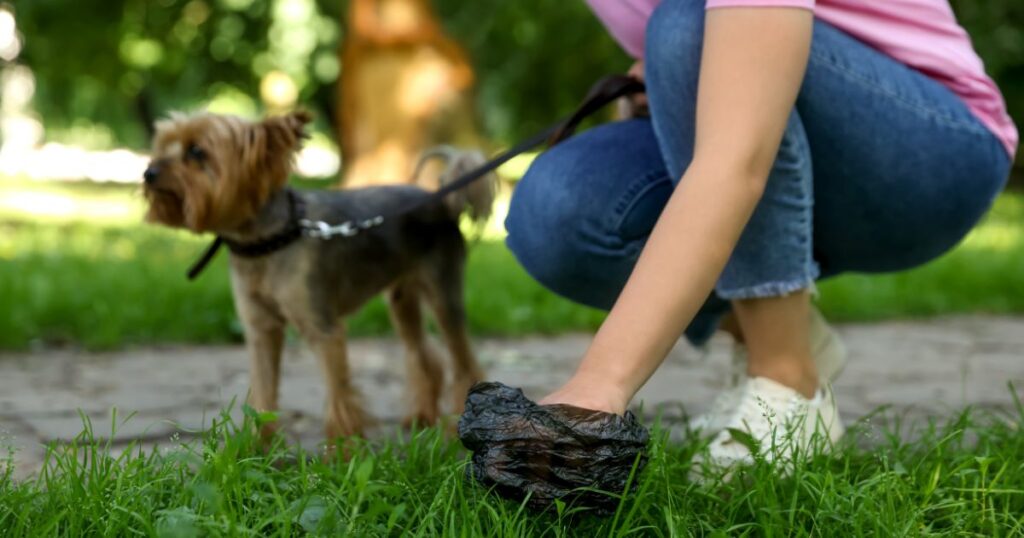
Their bathroom habits extend beyond just urination; allocate ample time for both urinary and bowel needs. Adequate exercise not only supports their potty habits but also contributes to their overall well-being.
Even though your Yorkie is fully potty-trained, occasional accidents might still occur. Factors like excitement, anxiety, or changes in routine can lead to unexpected incidents. Responding with patience and understanding is key.
Instead of scolding, focus on positive reinforcement. Praise and rewards for consistent potty behavior will strengthen their connection between good habits and positive outcomes.
Adult Yorkies possess the capability to hold their bladder for extended periods. However, it’s crucial to respect their limits and be attentive to their individual needs.
Yorkie’s Pooping Frequency: How Often Do Yorkies Pee And Poop?
It is important to understand that Yorkies bathroom habits goes beyond just urination. The frequency of pooping, a vital aspect of their overall health, is equally intriguing and essential.
Let’s dive into the intriguing world of Yorkie pooping habits, shedding light on what’s considered normal, potential variations, and when it is essential to pay extra attention.
For adult Yorkies, it is typical to have 2-3 bowel movements a day. This pattern is indicative of a well-functioning digestive system and a balanced diet. Puppies, on the other hand, tend to have a more frequent pooping schedule, ranging from 3-6 times a day.

This difference can be attributed to their rapidly developing digestive systems, which process food more quickly and efficiently.
If you’re a proud puppy parent, don’t be alarmed by your fur baby’s frequent trips to the bathroom. Puppies are growing rapidly, and their bodies are working hard to absorb nutrients from their food. This often results in more frequent pooping. As they mature, their digestive system will settle into a more predictable routine.
It’s crucial to remain attentive to your Yorkie’s pooping patterns. Increased frequency of bowel movements, particularly if they deviate from their typical range, could signal an underlying problem.
Such issues might include dietary sensitivities, gastrointestinal disturbances, or even infections. On the flip side, variations in pooping frequency might be influenced by factors like alterations in diet or heightened stress levels.
Should you notice consistent irregularities in your Yorkie’s pooping habits, such as prolonged periods of either increased or decreased frequency, changes in stool consistency, or signs of discomfort during elimination, seeking professional guidance is recommended.

Your veterinarian possesses the expertise to discern between normal variations and potential health concerns. Regular communication with your vet ensures that any issues are addressed promptly, maintaining your Yorkie’s optimal health and comfort.
It is essential to familiarize yourself with the characteristics of healthy poop. The ideal poop should be well-formed, moist but not excessively so, and easy to pick up. Additionally, keeping an eye on the color and any signs of blood or mucus is crucial. These observations provide valuable insights into your Yorkie’s digestive health.
Understanding your Yorkie’s unique pooping patterns contributes to their overall well-being. Just like humans, these patterns can be influenced by various factors, including diet, exercise, and stress levels. By closely monitoring their habits, you’ll be better equipped to identify potential problems early and provide timely intervention.
Tips for Creating a Potty Schedule
Creating a structured and consistent potty schedule for your beloved Yorkie is not just a routine; it is a fundamental aspect of their well-being. A well-managed potty schedule not only promotes a clean living environment but also nurtures their physical and mental health.
1. Be Consistent
Establishing a predictable routine is paramount. Dogs, including Yorkies, thrive on consistency. Set specific times for potty breaks, and strive to maintain this schedule every day. This predictability helps your Yorkie anticipate when it is time to relieve themselves.
2. Don’t Forget After-Mealtime Breaks
Timing potty breaks after meals is strategic. Just like us, Yorkies experience increased digestive activity after eating. Taking them out for a potty break shortly after they have finished their meals ensures that their digestive system aligns with their bathroom needs.
3. Establish Morning and Night Routine
Morning and nighttime are two pivotal moments to incorporate into your Yorkie’s potty routine. Start the day by taking them outside first thing in the morning. This not only addresses their immediate need but also sets a positive tone for the day. Similarly, a final potty break before bedtime ensures they are comfortable through the night.

4. Observe Behavioral Signs
Your Yorkie communicates through behavior. Restlessness, circling, sniffing the ground, or scratching at the door are all signs that they need to go. Paying attention to these cues and responding promptly establishes trust and helps them understand that their needs are understood.
5. Supervise After Play and Excitement
Playtime is exhilarating for Yorkies, but it can also trigger the need to eliminate. After active play sessions or instances of heightened excitement, guide them to their designated potty area. This proactive approach prevents accidents indoors.
6. Be Patient
Like any learning process, potty training requires patience. Accidents may happen, especially during the initial stages. Responding with patience and reinforcing positive behavior is crucial for your Yorkie’s progress.
7. Practice Positive Reinforcement
Celebrate each successful outdoor potty break with enthusiasm. Praise, treats, or a simple “good job!” goes a long way in reinforcing their connection between appropriate bathroom behavior and positive outcomes.
8. Set Realistic Expectations
Understand the limitations of your Yorkie’s age. Young puppies have smaller bladders and limited holding capacities. Adjust your schedule to accommodate more frequent potty breaks for puppies, gradually extending the intervals as they mature.
9. Consider Crate Training
Crate training can be a valuable aid in potty training. Dogs generally avoid soiling their living space, making a crate a useful tool in preventing accidents when you’re unable to supervise closely.

10. Adapt to Changes
Flexibility is essential. Changes in routine, weather, or even your Yorkie’s health can impact their potty needs. Be ready to adjust the schedule when necessary to ensure their comfort and well-being.
By thoughtfully crafting a potty schedule that respects your Yorkie’s natural instincts and accommodates their unique needs, you’re setting them up for a balanced and content life. Remember, a well-structured potty routine isn’t just about bathroom breaks; it is about nurturing their health.
Potential Potty Issues
Navigating the realm of potty training can occasionally present challenges, even for the most dedicated Yorkie guardians.
However, fret not, for we are here to equip you with valuable insights on addressing common potty issues that might arise during your Yorkie’s journey to becoming a seasoned potty pro. Let’s delve into potential hiccups and effective strategies for tackling them:
Indoors Accidents
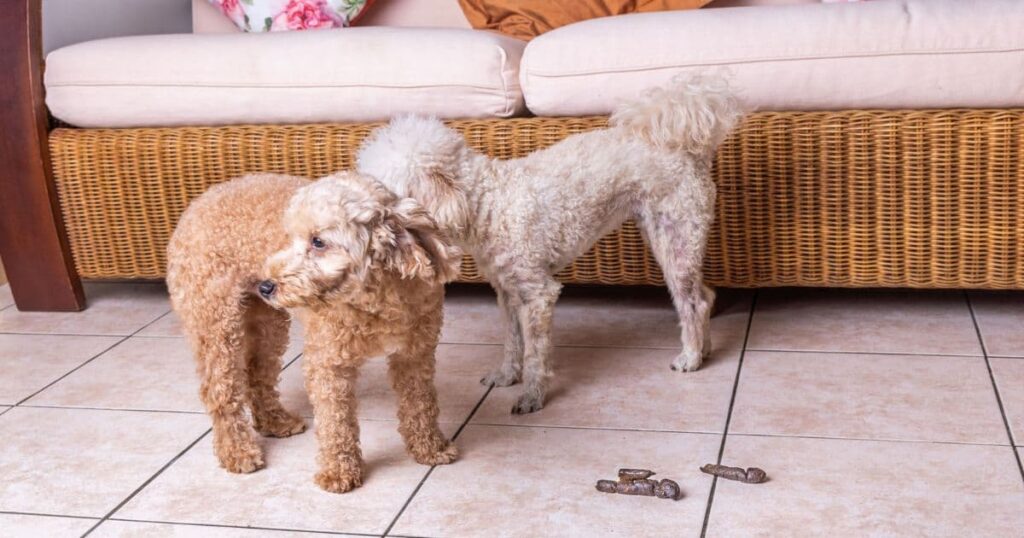
Accidents indoors are a natural part of the potty training process, especially with young puppies. Don’t scold or punish your Yorkie for accidents; this can hinder their progress and cause confusion.
Clean up accidents promptly using enzymatic cleaners to remove scent markers that might attract them to the same spot.
Changes in Habits
If you notice your Yorkie suddenly having more accidents or displaying changes in potty behavior, consider factors such as stress, illness, or changes in routine.
Reflect on recent alterations in their environment, such as moving to a new home or a new family member’s arrival. These changes can temporarily disrupt their established routine.

How to Handle Potty Issues in Yorkie?
Maintain consistency in your potty training routine. Even amidst setbacks, consistency is crucial for reinforcing the desired behavior.
Utilize positive reinforcement when your Yorkie successfully eliminates outside. This positive association encourages them to follow the established routine.
Crate training can be a great tool to prevent accidents when you can not supervise closely. Dogs naturally avoid soiling their living space.
Consult a Veterinarian
When potty issues persist, especially if they are accompanied by other symptoms like vomiting, diarrhea, lethargy, or discomfort, consult your veterinarian promptly. These signs could point to underlying health concerns.
Yorkies are prone to certain health issues, such as urinary tract infections, that can influence their potty behavior. Early intervention ensures your Yorkie’s well-being.
Role of Patience
Patience remains your strongest ally. Celebrate progress and reinforce positive behavior with gentle praise, treats, or affection.
Remember, every Yorkie is unique. Some might catch on quickly, while others require more time to master potty training. Tailor your approach to their individual needs.
Potty training can be a journey of ups and downs. Remember, setbacks are a natural part of the process, and with persistence, patience, and the right strategies, you’ll witness your Yorkie’s growth into a potty-savvy companion.
Frequently Asked Questions (FAQs)
1. How often should you take a Yorkie outside to pee?
Taking your Yorkie outside for a pee break involves striking a balance between routine and individual needs. Generally, it is advisable to aim for every 2 to 4 hours during the day. Puppies and younger Yorkies may require more frequent breaks due to their smaller bladders.
Additionally, remember to factor in outdoor time after meals, upon waking up, and before bedtime. Being attentive to behavioral cues can also help you gauge when they need to go.
2. How often do Yorkies have accidents?
Accidents are a common aspect of potty training, especially during the initial stages. Puppies have developing bladder control, and accidents can occur if the timing of potty breaks is not aligned with their needs.
As they mature and their bladder capacity increases, accidents should become less frequent. Consistency in training, patience, and positive reinforcement are key to minimizing accidents.
3. How many times should a Yorkie poop a day?
The frequency of pooping varies based on factors like age, diet, and individual metabolism. For adult Yorkies, a general range is 1 to 2 times a day.
Young puppies, however, might poop more frequently due to their rapidly developing digestive systems. Keep an eye on their stools’ consistency and watch out for any sudden changes, as they could indicate underlying issues.
4. How often should a Yorkie urinate?
Urination frequency depends on factors such as age, activity level, and water intake. Adult Yorkies typically urinate around 4 to 8 times a day. Puppies, with their smaller bladders, might need to go more frequently. Adequate outdoor breaks, especially after meals and naps, help prevent accidents indoors and support their well-being.
Nurturing Potty Proficiency
In this exploration into the world of Yorkie potty habits, we’ve uncovered the essence of effective training. From understanding their distinct needs to devising structured schedules, the roadmap to success is illuminated.
With vigilance and patience, you can cultivate a harmonious routine that caters to your furry companion’s nature. Remember, your attentive care and implementation of the strategies shared here will undoubtedly lead to a potty-proficient Yorkie, fostering a happy coexistence.



